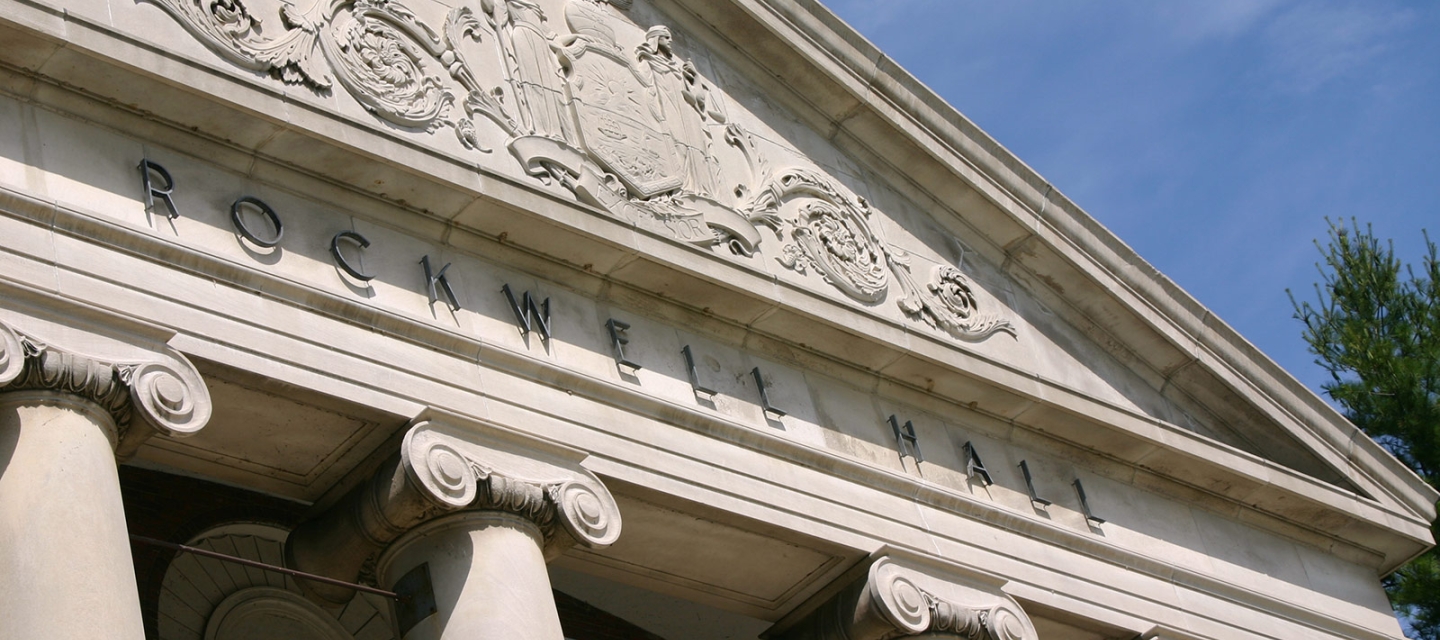
Providing a Strong Foundation
Buffalo State's criminal justice program is the oldest in Western New York and the second-largest program on campus.
Our well-qualified, nationally known faculty are trained in a variety of disciplines with a policy-oriented curriculum, grounded in the social sciences.
Classes are relatively small and the department is involved in the community with a well-developed internship program.
Our Goals and Objectives
The goals of the criminal justice department are several. The primary goal of the department is to provide a comprehensive, current, and intellectually challenging education in the discipline of criminal justice to our students. This is an education that blends professional and academic coursework with the social sciences and liberal arts. Through learning and the dissemination of knowledge, the broadly defined role of the department’s multi-disciplinary faculty is:
- to instruct in the operations of the individual and collective components of the criminal justice system
- to adopt relevant theoretical constructs and empirical analysis from social science and other disciplines;
- to explore the area of criminal justice and jurisprudence;
- to examine the etiology of crime and the manifestation of criminal conduct;
- to analyze the application of legal principles; and
- to explore methods of improving crime control strategies; administration of justice; and the operations of criminal justice and crime control agencies in a democratic society.
A second goal consists of involvement in scholarly activities. This includes but is not limited to such activities as the conduct of basic and applied research; the publication of books and monographs and articles in refereed journals; and, the presentation of papers before learned and professional societies and at professional meetings.
A third goal of the criminal justice department is one of providing a broad range of professional service activities to the college and community. The broad scope of this goal can include participation and leadership on departmental, school, and collegiate committees; technical and consultative activities with particular criminal justice agencies; assistance to citizen groups interested in crime-related issues or topics; and, speaking engagements and service germane to the profession of criminal justice.
To the extent that the faculty can accomplish these goals, they will provide students with a strong foundation to pursue careers in criminal justice or related areas, and for future graduate education.
Our History
2020s
- Revised undergraduate curriculum and updated elective requirements for criminal justice majors.
- The department enhanced the concentrations in Police, Corrections, and Intelligence Analysis.
2010s
- Enrollment increased significantly during this era. In fall 2009, the department had 551 students and by fall 2017, there were 725 students.
- Dr. Scott Phillips was named Futurist Scholar in Residence, from the Behavioral Science Unit, Federal Bureau of Investigation (FBI) Academy in Quantico, VA in Fall 2010.
- New courses focused on Statistics, Terrorism, Intelligence Analysis, and Crime Analysis were created. New faculty were hired to teach these new courses.
- Dr. Scott Phillips helped develop the intelligence analysis minor which launched in 2011.
- The Graduate Program was revised (fall 2015) with 6 “core” classes being required for all majors (the remaining classes are electives).
- Criminal Justice internship criteria changed to provide more students with the opportunity for field experience (fall 2019).
- Drs. Gayadeen (2012), Kim (2012), Menasco (2013), Breen (2016) and Petlakh (2018) were hired as assistant professors.
2000s
- Drs. Cretacci (2006), D’Angelo (2007), Phillips (2006), Sobol (2008) and Wu (2009) were all hired as assistant professors.
1990s
Fall 1991, the Criminal Justice Department introduced a new undergraduate curriculum. New courses reflected the changing nature of crime and the response to it.
New elective course offerings were added to the Criminal Justice Minor in 1992 and again in 1996. A more diverse list of supporting electives provided students with flexibility and reflected the growing demand and interest in criminal justice courses.
- Dr. Elizabeth Szockyj (retired) was hired in 1991 and Dr. Scott Johnson was hired in 1994.
1980s
- A minor in criminal justice was approved in May 1980.
- In 1986, the Criminal Justice Department separated from the Social Work Department.
- Dr. Song was hired in 1988 as an assistant professor. He is currently our longest-serving faculty member in the department.
1970s
The Criminal Justice Department at Buffalo State had its beginnings in 1970. The initial emphasis was to train and educate law enforcement personnel, such as police officers, probation and parole officers, prison and security personnel. The program was designed to prepare graduates for graduate work in law and social work. Few colleges had such a program, and only two existed in New York State, the City University of New York (1964) and the State University of New York at Albany (1968).
- In 1977, the Criminal Justice Department began offering a master’s degree in criminal justice.
- Due to statewide budget cuts to SUNY, the Criminal Justice Department was merged with the Social Work Department from 1977 until 1986.
Beginnings
Concern with crime problems was first formally reflected in the offerings at Buffalo State College in September 1969. That semester a new program in Police Science was implemented. The program was established primarily to allow graduates of two-year community college police science programs to continue their education to the baccalaureate level. This change came at a time when police science was being broadened into criminal justice programs stressing the interdependence of all agencies in the criminal justice system.

Our Alumni
Join Us!
The Criminal Justice Department has always maintained a strong connection with our alumni. You are part of a network that is 100,000+ strong!
We encourage graduates to join the Criminal Justice Alumni Chapter or serve on its Executive Committee.

